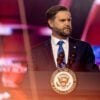Council on Foreign Relations senior fellow Walter Russell Mead writes at Foreign Policy:
Neither a cold-blooded realist nor a bleeding-heart idealist, Barack Obama has a split personality when it comes to foreign policy. So do most U.S. presidents, of course, and the ideas that inspire this one have a long history at the core of the American political tradition. In the past, such ideas have served the country well. But the conflicting impulses influencing how this young leader thinks about the world threaten to tear his presidency apart — and, in the worst scenario, turn him into a new Jimmy Carter.
…
It is not only Americans who will challenge the new American foreign policy. Will Russia and Iran respond to Obama’s conciliatory approach with reciprocal concessions — or, emboldened by what they interpret as American weakness and faltering willpower, will they keep pushing forward? Will the president’s outreach to the moderate majority of Muslims around the world open an era of better understanding, or will the violent minority launch new attacks that undercut the president’s standing at home?
…
If Obama’s foreign policy collapses — whether sunk by Afghanistan or conflicts not yet foreseen — into the incoherence and reversals that ultimately marked Carter’s well-meaning but flawed approach, it will be even more difficult for future presidents to chart a prudent and cautious course through the rough seas ahead.
Astute analysis. Here is what Heritage scholar James Carafano wrote in October 2009:
He followed an unpopular president. He received a strong election mandate. He changed the tone in Washington.
He said that Human Rights mattered. That America’s image in the world had to be remade.
He would receive a Nobel Peace Prize.
As the end of his presidency’s first year drew near, the future looked bright. He had brought change — change that mattered.
It was 1977. The next year was very bad…
…
Why did things go south for Carter so fast? Because America’s enemies had taken measure of the man during his first, change-filled year in office. They saw weaknesses they could exploit. In the second year, they made their move.
…
The rhetoric of soft power is inspiring and ever hopeful. But unless the nation seems firmly committed to backing that soft power with some hard muscle, those with no love of America will interpret the rhetoric as the vapid mooings of a nation in retreat.That interpretation could make 2010 a year of living dangerously.
Nobody wants to see the resurgence of autocracies in Iran and Russia, or chaos in Iraq and Afghanistan, or emboldened leftists throughout our own hemisphere. But the parallels between the failures of Jimmy Carter and the challenges of President Obama are growing every day.

































8 Replies to “The Second Coming of Jimmy Carter?”